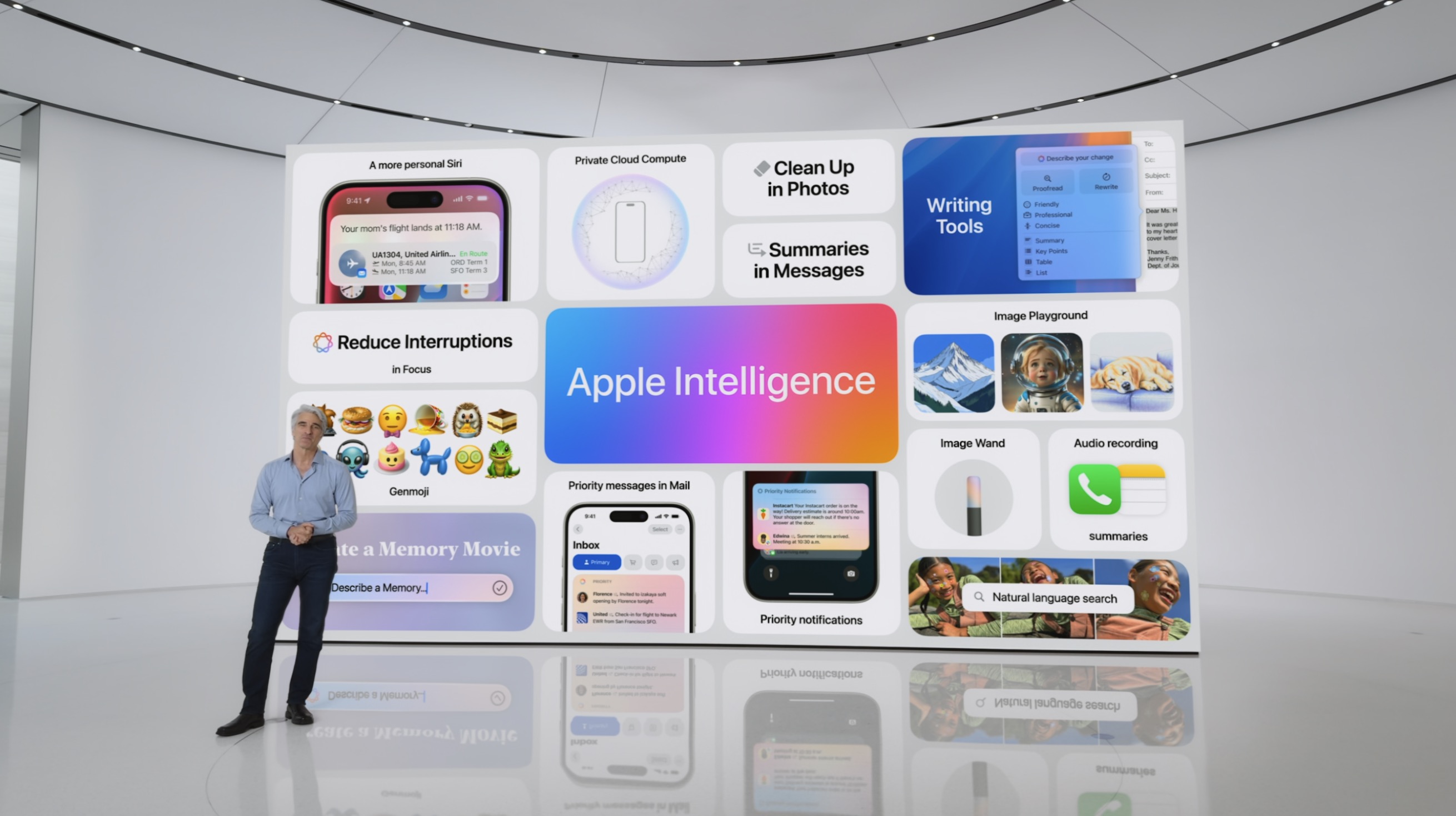Pixel 9 Is A Huge Problem For ChatGPT, And The iPhone 16 Will Only Be A Partial Fix
Despite all the leaks that revealed every single detail about the Pixel 9 line ahead of Google's keynote last week, the press event impressed me in a way I didn't necessarily expect. The Made by Google event was about hardware, with the Pixel 9 at the center. But the real product that Google was selling is Gemini AI, complete with all its capabilities that are available now.
I realized that the Pixel 9 isn't only Google's big attack against Apple but also its big defense against Apple Intelligence. Google can take advantage of a once-in-a-lifetime opportunity to sell its Gemini AI experience to more people: The iPhone is trailing behind. It's not about Apple Intelligence only coming in October or even later. It's about Apple Intelligence not working on most iPhones out there.
The massive cohort of iPhones ready to receive the newest iOS update when Apple releases it was always Apple's huge advantage against Google. The latter could never compete, and the previous Pixel phones didn't really help.
The Pixel 9 might help Google even the playing field ahead of the iPhone 16 launch. Once Apple Intelligence takes off and Apple starts adding features and catching up to Gemini, it's unlikely that any future Pixel generation would have the same opportunity as the Pixel 9.
What I'm trying to get at right now is ChatGPT and OpenAI's biggest problem: There's no hardware for ChatGPT to call home, and OpenAI's partnership with Apple will only partly address the matter.
ChatGPT is available on mobile devices right now, and it'll be an integral part of Apple Intelligence on the iPhone 15 Pros and iPhone 16. Users will be able to quickly access the chatbot via Siri on these devices.
GPT-4o Voice Mode will also likely roll out to more ChatGPT users. That's the human-like voice interface that's similar to Gemini Live. The latter went live after Google's Pixel 9 event and will be available on various Android phones, not just the newest Pixels.
But ChatGPT can't be a real assistant like Siri and Gemini can. It's unlikely that Apple will let ChatGPT access user content on the iPhone in the way Siri will be able to. I also don't expect ChatGPT to be able to help with information on the screen of iPhones. That is, not unless regulators in some markets might force Apple to allow iPhone users to choose their own AI assistants.
The same goes for Android to some extent. Here, it might be possible for ChatGPT to become a better assistant than on the iPhone. But Google will probably make it difficult.
Meanwhile, Gemini will offer advanced assistant features on Android devices, starting with the Pixel 9. In the near future, Gemini Live will also get access to the Pixel 9's camera to see the world and further assist the user. Add Gemini access in Google apps, and Google's AI can become a powerful personal assistant on the Pixel 9.
OpenAI can't match that on mobile devices, the most important computers in our lives. Some people might prefer ChatGPT over Gemini and other rivals. But I don't see how ChatGPT can evolve into the personal assistant that knows everything about you on mobile devices.
Again, the partnership with Apple is limited and is only meant to offer iPhone users access to a chatbot. As soon as Apple's ChatGPT alternative is available, it'll become the default iOS, iPadOS, and macOS chatbot.

I want what Google is doing with the Pixel 9 without moving to Android. Instead, I'm waiting for the iPhone to match. Also, I want AI to become a trustworthy, dependable assistant. And I want that experience to extend across devices in the Apple ecosystem.
This isn't about talking to ChatGPT about anything you can think of. It's not about helping with homework or coding. It's about integrating the AI with key apps on the device, like email, messages, calendar, and navigation. It's about responding to questions related to personal data in those apps combined with other contextual information. And it's about using voice to control the device and data on it.
That's what Gemini on Pixel 9 will be able to offer, and that's what Siri will do on iPhone.
There's also the big privacy aspect, one that Apple's nascent Apple Intelligence seems to be winning. Apple is marching towards an on-device-first AI experience in ways not even Google might match. Though, again, the big Pixel 9 upgrade is also about powering on-device Gemini experiences.
ChatGPT will need its own hardware in the coming years to achieve the same level of functionality. That will be the only way to compete with Google and Apple.
Rumors say that Sam Altman and Jony Ive are already working on ChatGPT hardware. But we have no official confirmations. And we have no idea how long this device will need to hit stores. Also, remember that AI-first products that were not sold as phones became massive disappointments earlier this year. The Humane Ai Pin is the best example of that.
Then again, we're still in the very early years of AI. We haven't reached a point where the AI experience is the key deciding factor for buying a prouct or ecosystem of products.
The Pixel 9 gives Google a different chance to compete against the iPhone. But it won't work unless Google sells a boatload of Pixel 9 units. Even then, Google can still bring many Gemini features to other compatible Android phones.
It's also why Apple's delay in launching Apple Intelligence features doesn't matter. But it has time to catch up to rivals.
Therefore, OpenAI also has time to develop AI hardware of its own. It's either that or giving ChatGPT powers that rivals simply can't match. I don't think the latter scenario is even possible, not when you're fighting Google and Apple.
